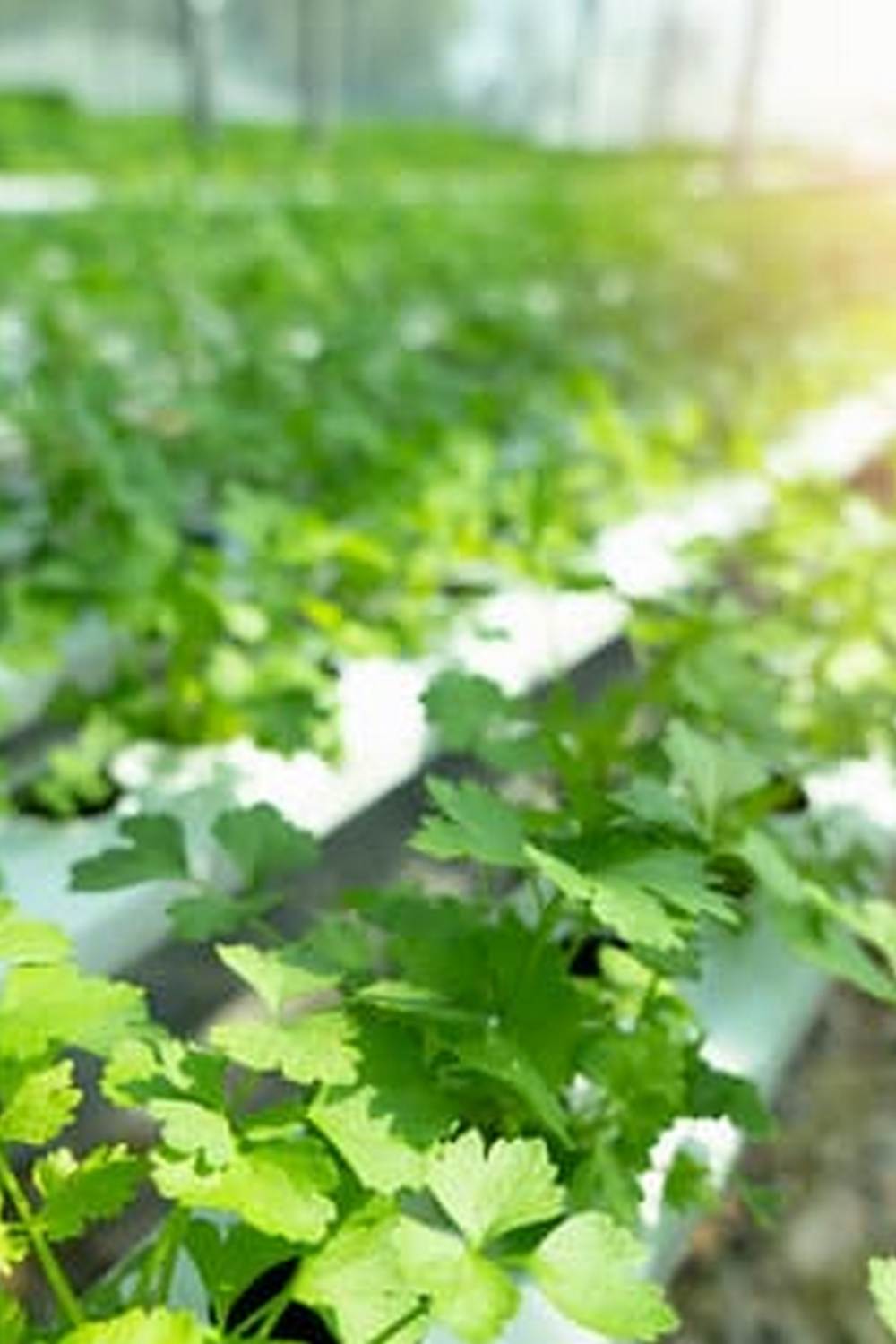Free range chicken vegetable gardens combine the benefits of raising poultry with the joys of cultivating a bountiful garden. By allowing chickens to freely roam amongst your vegetables, you create a symbiotic relationship where both the chickens and the garden thrive. In this article, we will explore how free range chickens assist in controlling pests, fertilizing the soil, and providing natural weed control in vegetable gardens.
One of the key advantages of incorporating free range chickens into your vegetable garden is their ability to naturally manage pest populations. Chickens are voracious insect-eaters and can help keep harmful pests at bay without the need for chemical pesticides. Additionally, their scratching behavior helps to aerate the soil, promoting better drainage and nutrient absorption for your plants. Their droppings also serve as a valuable fertilizer, enriching the soil with essential nutrients that promote healthy plant growth.
As you plan your free range chicken vegetable garden, it’s important to consider factors such as choosing the right location, setting up appropriate fencing to protect delicate plants from chicken intrusion, and designing a layout that allows for optimal space utilization by both chickens and crops. By implementing thoughtful planning strategies and selecting suitable chicken breeds for free ranging, you can create a harmonious environment where chickens contribute positively to your gardening efforts.
Benefits of Free Range Chickens
Free range chickens play a vital role in maintaining a healthy and thriving vegetable garden. These feathered friends offer a natural and sustainable approach to pest control, soil fertilization, and weed management. When allowed to roam freely within the garden space, free range chickens actively seek out insects, larvae, and other pests that can harm crops. This helps reduce the need for chemical pesticides and promotes a more eco-friendly gardening environment.
In addition to pest control, free range chickens also contribute to soil health through their natural fertilizing behavior. As these chickens move about the garden, they scratch and peck at the soil, breaking down organic matter and mixing in their droppings. This process helps enrich the soil with valuable nutrients like nitrogen, phosphorus, and potassium – essential elements for healthy plant growth. The constant movement of free range chickens also aerates the soil, improving drainage and overall soil structure.
Furthermore, free range chickens provide effective weed control in vegetable gardens by eating various weed seeds and seedlings. Their foraging habits help suppress weed growth naturally without the need for herbicides or manual weeding. By allowing chickens to roam freely in your vegetable garden, you not only harness their pest control and fertilization benefits but also enjoy a reduced reliance on synthetic chemicals while promoting a more sustainable gardening approach.
| Benefits | Details |
|---|---|
| Pest Control | Free range chickens help control pests by eating insects and larvae. |
| Soil Fertilization | Chickens enrich the soil with nutrients through their scratching behavior. |
| Weed Control | These chickens aid in reducing weeds by consuming seeds and seedlings. |
Planning Your Free Range Chicken Vegetable Garden
When planning your free range chicken vegetable garden, one of the first crucial steps is selecting the right location. The ideal spot should have ample sunlight for your vegetables to thrive and provide enough space for your chickens to roam freely. It’s also essential to consider proximity to a water source for both your garden and chickens. Additionally, ensure that the location is secure from potential predators that may harm your chickens or damage your crops.
In terms of fencing, choosing the right type is vital to prevent your free range chickens from straying into areas where they shouldn’t be. Consider using sturdy wire fencing that is tall enough to deter predators and keep your chickens contained. Furthermore, installing a gate or barrier can help control access points and protect specific areas of your vegetable garden if needed.
When laying out your free range chicken vegetable garden, aim to create designated areas for both gardening and chicken activities. Dividing the space strategically can help avoid conflicts between your plants and chickens while maximizing efficiency in managing both aspects of your garden. For instance, you may want to establish separate zones for planting beds and grazing areas to maintain a healthy balance for both plant growth and chicken well-being.
| Aspect | Recommendation |
|---|---|
| Location | Choose a sunny area with access to water. |
| Fencing | Use tall wire fencing and install gates for controlled access. |
| Layout | Create designated zones for gardening and chicken activities. |
Choosing the Right Chicken Breeds
When it comes to incorporating free range chickens into your vegetable garden, choosing the right chicken breeds is essential for a successful and harmonious coexistence. Not all chicken breeds are well-suited for free ranging in vegetable gardens, as some may have a tendency to be more destructive or less productive in this setting. It’s important to select breeds that are known for their gentle temperament, good foraging abilities, and overall adaptability to roaming freely.
Heritage Breeds
One category of chicken breeds that are often recommended for free ranging in vegetable gardens are heritage breeds. These breeds typically have excellent foraging instincts, are hardy and adaptable to various environments, and tend to be more docile in nature. Some popular heritage breeds for free range chicken vegetable gardens include Sussex, Orpingtons, Plymouth Rocks, and Australorps.
Bantam Breeds
For those with limited space or looking for smaller chickens that still excel at free ranging, bantam breeds may be a great choice. Bantams are miniature versions of standard-sized chickens but retain many of the same characteristics that make them suitable for roaming in vegetable gardens. They are known for being friendly, active, and great at insect control.
Dual-Purpose Breeds
If you’re looking for chickens that can serve both as egg layers and meat producers while also thriving in a free range setting, dual-purpose breeds are worth considering. Breeds like Rhode Island Reds, Wyandottes, and Barred Rocks fall into this category and can provide a balance of productivity and adaptability for your free range chicken vegetable garden.
Choosing the right chicken breed is an important factor in creating a sustainable and mutually beneficial ecosystem between your chickens and vegetable garden. By selecting breeds that are well-suited for free ranging and have attributes that align with your goals, you can enjoy the benefits of pest control, soil fertilization, and weed management while also reaping the rewards of fresh eggs and organic produce from your garden.
Housing and Coop Design
When it comes to setting up a free range chicken vegetable garden, one of the key considerations is creating a suitable housing and coop design for your feathered friends. The coop not only provides shelter and protection for the chickens but also helps safeguard your vegetable garden from potential damage. Here are some tips on exploring different coop designs and setups that allow chickens to roam freely while maintaining the integrity of your garden:
- Consider the size: Make sure the coop is spacious enough to accommodate all your chickens comfortably. A general rule of thumb is to provide at least 4 square feet of coop space per chicken.
- Include a secure run: To allow the chickens to roam outdoors while protecting your vegetable garden, consider including a secure run attached to the coop. This gives them space to scratch, peck, and forage without venturing into areas where they could cause damage.
- Choose appropriate materials: Opt for sturdy materials that can withstand both weather elements and potential predators. Ensure that the coop is predator-proof with lockable doors and windows to keep your chickens safe at night.
In addition to providing shelter and protection, the coop design should also prioritize ease of cleaning and maintenance. Regular cleaning is essential for keeping both your chickens healthy and your vegetable garden thriving. By investing time in planning and building a suitable housing and coop setup, you can create a harmonious environment where free range chickens and vegetable gardens coexist beneficially.
Ultimately, finding the right balance between allowing free range chickens to explore and protecting your vegetable garden from unwanted disruptions is crucial for a successful setup. By incorporating thoughtful design elements into your coop layout, you can ensure that both your feathered friends and your crops thrive harmoniously in this symbiotic relationship of free range chicken vegetable gardens.
Feeding and Watering Free Range Chickens
When it comes to raising free range chicken vegetable gardens, ensuring that your chickens have access to a well-balanced diet is crucial for their health and overall performance. While free ranging allows chickens to forage for bugs, plants, and seeds naturally, supplementing their diet with additional feed may be necessary to ensure they are getting all the nutrients they need.
Here are some tips on feeding and watering your free range chickens to ensure they thrive in your vegetable garden:
- Provide a high-quality layer feed: While free ranging, chickens may not always find enough nutrients to support egg laying, so offering a balanced layer feed is essential. Look for feeds that contain calcium and other essential vitamins and minerals for healthy egg production.
- Offer plenty of fresh water: Just like any other animals, chickens need constant access to clean water. Make sure to regularly check and refill their waterers to keep them hydrated, especially during hot weather or when they are laying eggs.
- Supplement with vegetable scraps and greens: To enhance your free range chickens’ diet and offer them additional nutrients, consider giving them leftover vegetable scraps from your garden. Chickens love treats like leafy greens, carrots, and cucumbers which can also help reduce food waste in your household.
In addition to providing a well-rounded diet for your free range chickens, it’s important to monitor their health and adjust their feeding regime as needed. Keep an eye out for any signs of malnutrition or deficiencies, such as poor feather quality or decreased egg production.
By carefully planning the feeding and watering routines for your free range chickens in the vegetable garden, you can ensure that they remain healthy while also contributing positively to the ecosystem of your garden.
Managing Chicken Manure
Benefits of Using Chicken Manure as Fertilizer
Chicken manure is a valuable source of nutrients for vegetable gardens, containing high levels of nitrogen, phosphorus, and potassium essential for plant growth. When properly composted and added to the soil, chicken manure can improve soil structure, increase microbial activity, and enhance overall fertility. This natural fertilizer not only enriches the soil but also promotes healthier plant growth and higher yields of vegetables.
In addition to its nutrient content, chicken manure also helps improve water retention in the soil, reducing the need for frequent watering during dry periods. Its organic matter content encourages earthworm activity and beneficial soil microorganisms, creating a balanced ecosystem that supports plant health. By utilizing chicken manure as fertilizer in your vegetable garden, you are not only recycling waste from your chickens but also contributing to sustainable gardening practices.
Composting Chicken Manure Safely
To avoid potential risks of pathogens and excess ammonia from fresh chicken manure, it is important to compost it properly before applying it to your vegetable garden. Composting allows the manure to break down over time, eliminating harmful bacteria and reducing its strong odor. By combining chicken manure with carbon-rich materials such as straw, leaves, or sawdust, you can create a balanced compost pile that will generate heat to kill pathogens effectively.
Aerate the compost pile regularly by turning it every few weeks to ensure proper decomposition and prevent anaerobic conditions that produce foul odors. The composting process typically takes several months to a year depending on environmental conditions and management practices. Once the chicken manure has fully decomposed into dark, crumbly compost with no detectable odor, it is ready for use as a safe and effective fertilizer in your free range chicken vegetable garden.
Applying Chicken Manure Fertilizer
When applying chicken manure fertilizer to your vegetable garden, spread a thin layer over the soil surface and incorporate it gently into the topsoil using a rake or hoe. Avoid direct contact between fresh manure and plant roots to prevent burning or nutrient imbalances that may harm plant health. Water the area thoroughly after application to help activate the nutrients in the composted manure and promote their uptake by plants.
For best results, apply chicken manure fertilizer in early spring before planting or as a side dressing during the growing season to provide ongoing nutrition for vegetables. Monitor plant growth and soil fertility levels regularly to adjust fertilization rates accordingly. With proper management of chicken manure as fertilizer in your free range chicken vegetable garden, you can enjoy bountiful harvests of healthy and delicious produce while maintaining sustainable gardening practices.
Harvesting & Enjoying the Fruits of Your Labor
In conclusion, integrating free range chickens into your vegetable garden can have numerous benefits for both your plants and the animals themselves. The symbiotic relationship between the chickens and the garden creates a sustainable ecosystem where pests are kept at bay, soil is naturally fertilized, and weeds are controlled without the need for harmful chemicals. By allowing chickens to roam freely in the garden, you are promoting a healthier environment that produces fresh, organic produce.
When it comes to harvesting the vegetables grown in a free range chicken vegetable garden, there are a few key tips to keep in mind. Firstly, make sure to regularly inspect your plants for any signs of damage or pests that may have slipped past the watchful eyes of your feathered companions.
Additionally, plan your harvests strategically to ensure a continuous supply of fresh vegetables throughout the growing season. Remember to wash all produce thoroughly before consumption to remove any traces of chicken manure or other contaminants.
Ultimately, reaping the rewards of your efforts in a free range chicken vegetable garden is incredibly satisfying. Not only do you get to enjoy delicious, homegrown produce that is free from harmful chemicals, but you also have the satisfaction of knowing that you are contributing to a more sustainable way of living. So why not consider incorporating free range chickens into your vegetable garden and experience firsthand the many benefits of this holistic approach to gardening?
Frequently Asked Questions
What Plants Are Good for Free Range Chickens?
Plants that are good for free-range chickens include various herbs like oregano, parsley, and basil, which not only provide additional nutrients but also act as natural insect repellents. Other suitable options are sunflowers, comfrey, and marigolds.
Should You Let Chickens in Your Vegetable Garden?
Allowing chickens in your vegetable garden can have both benefits and drawbacks. On the positive side, they can help control pests and provide natural fertilizer through their droppings. However, they might also eat or trample on your crops if not properly managed.
What Vegetables Can You Grow Around Chickens?
Vegetables that you can grow around chickens include leafy greens like spinach, lettuce, and Swiss chard. These plants are less likely to be eaten by the chickens and can benefit from the nutrients provided by their droppings. Additionally, root vegetables such as carrots and beets can also thrive in a chicken-friendly environment.

If you’re looking to get into vegetable gardening, or are just looking for some tips on how to make your current garden better, then you’ve come to the right place! My name is Ethel and I have been gardening for years. In this blog, I’m going to share with you some of my best tips on how to create a successful vegetable garden.





